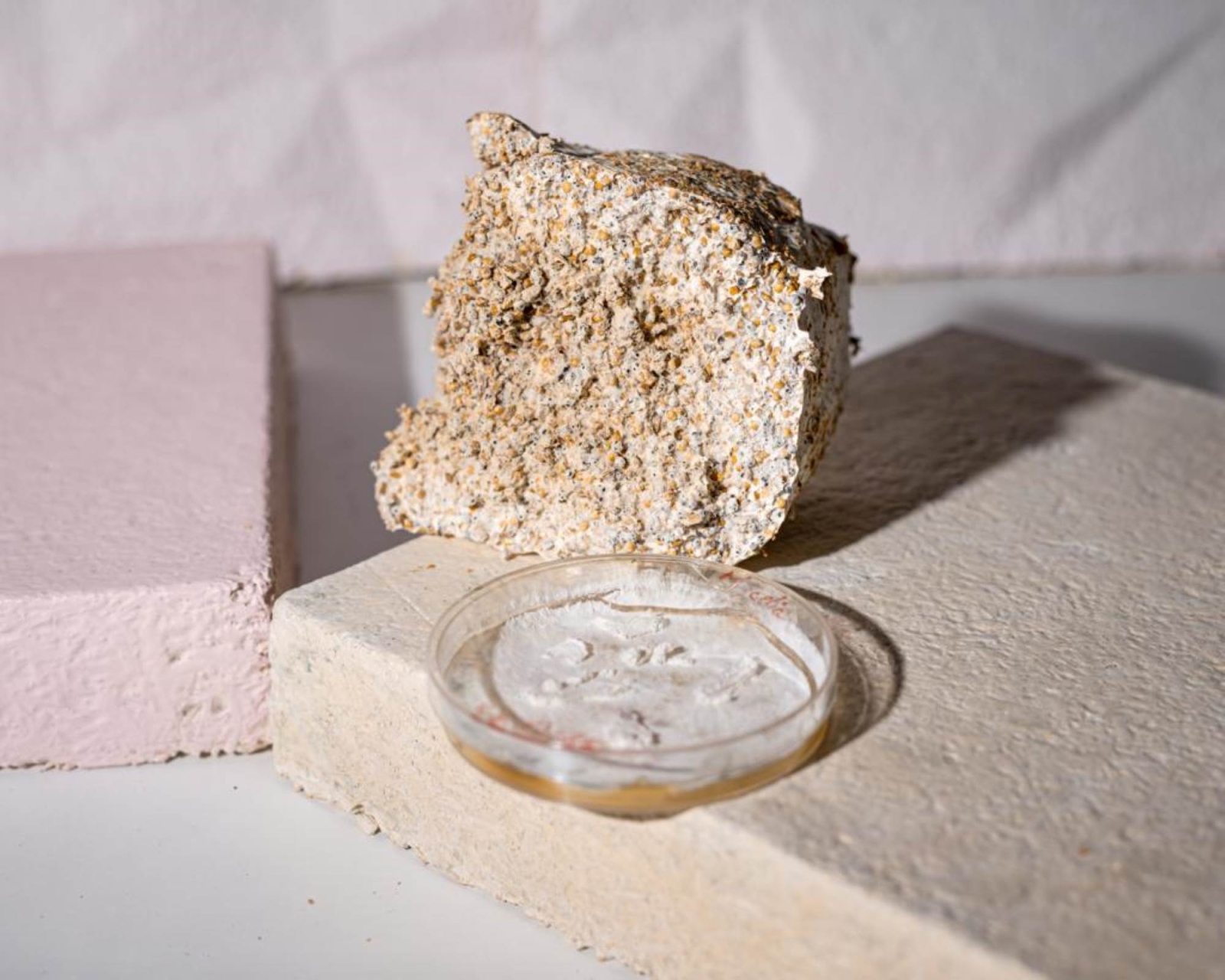RongoDesign combines mycelium technology and the recycling of agroindustrial waste to create safe and durable interior design products with biophilic characteristics, which help build healthy spaces and promote physical and mental well-being. The company uses mycelium, the vegetative portion of fungi, to develop materials used for furniture and packaging on organic and synthetic substrates that are byproducts or waste from other industries.
Mycelium from coffee grounds and agricultural waste
To produce the mycelium solutions, RongoDesign selects commercial and agricultural byproducts that would otherwise end up in a landfill, such as coffee grounds and the residue of crops like hemp, hops, and sunflowers. RongoDesign estimates that its production process is carbon negative, because mycelium captures twice its weight in CO2 during cultivation, while the products manufactured by the company are 100% biodegradable and thus avoid the creation of waste.
Fungi-based biomaterials for construction and packaging
Founded in 2021 by a team with experience in the biotechnology and agricultural sciences sectors led by Gabriel Barta, RongoDesign is aimed at the B2B market and has recently started to sell its first products, which are acoustic and thermal insulation panels, on the Romanian market. According to the company, the panels offer 40% better thermal insulation and 70% better acoustic insulation than synthetic polystyrene panels.
Supported by EU programmes such as COSME, EIT Climate KIC, and Start for Future, the Romanian startup aims to harness the use of mycelium and the production of biomaterials to make the construction and packaging sectors more sustainable and circular.
Website:
www.rongodesign.com
Sector:
Interior design
Pros:
Use of byproducts and organic waste, including coffee grounds and crop residues
Features:
Biotechnology startup that manufactures safe and durable mycelium-based interior design products
Image: RongoDesign



